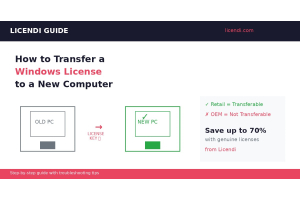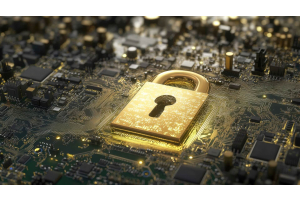CAL and SQL Server for Business.

What does CAL mean?
CAL is not to be regarded as software, but as a licence that enables its user to access existing systems or the SQL Server software. Therefore CAL (Client Access Licence) stands for client access licence. You also do not need to purchase a CAL licence when you buy SQL Server x Core licences, as CAL licences are only required if you have chosen the "CAL+SQL" licensing model.
Therefore, in order to know what type of licence you should buy, it is most important that you consider the number of devices and users in the company to determine the number of CAL licences you need to buy.
Why do companies use SQL Server and when do they use CAL+SQL?
More and more companies are using Microsoft SQL Server because it is a very powerful tool for managing, storing and analysing databases.
If you use Microsoft SQL Server to store and manage information, you need CALs to allow the desired users or devices to access the server. In this blog we will cover the following topics: What are the CAL requirements depending on the size of your business, and what two licences do businesses typically purchase? Licendi offers a variety of SQL Server and CAL versions to suit your needs.
Which SQL Server model should I choose for my company?
If your company is still relatively small, or in other words, if you are still an SME (small and medium-sized enterprise), the SQL Server CAL model is usually the product that best suits your needs. It is cost-effective and a tool that can easily manage the amount of data you need to store and access. If your company is already large or you foresee that you will grow exponentially, it is cheaper to purchase Core Licence as it allows an unlimited number of users to access your server.
SQL Server Standard is available as a CAL+SQL version as well as SQL on a Core basis. SQL Server Enterprise is only available as part of a Core licence and does not require the purchase of separate CAL licences for your users. In short, a CAL+SQL licence is a small business solution. Core licences are generally more beneficial for larger companies.
Should I choose User CAL or Device CAL?
There are two types of CALs for SQL Server. These are the user CAL and the device CAL. To understand what the differences are, let's explain them in detail.
• User CAL: This is a licence for one user who can log on to a number of different computers with the same CAL.
• Appliance CAL: This CAL is connected to the appliance and enables different users to access the functions of SQL Server for Business.
Depending on the situation of your company and your users, you will benefit more from one or the other. If your users or customers use a variety of different devices to access SQL Server, you will be more interested in the first option. The device CAL is more economical if many users or customers use the same device. In many cases, user CALs are the right solution, but ultimately the decision is yours.
How many CALs will I need?
This depends on the number of users who need to be allowed access to the SQL server. If you have a company with 30 employees who all work from 08:00-17:00, you need to purchase 30 CAL licences.
But if your company has, for example, 60 employees, but you have 30 devices and half of them work the morning shift and the other half the afternoon shift, you only need 30 CALs. Since a maximum of 30 CALs are used at the same time, you don't need to buy any more.

Is a SQL Server 2 Core licence suitable for me as a company?
The SQL Server 2 Core licence offered by many providers is a core licence. When you buy this licence, you get two core licences that you can apply to two cores. One core licence is required for each core. If we assume that you have a physical server with 6 cores and 3 processors, you can license a total of 18 cores. To cover all your processors and include them in SQL Server, you will need to buy a total of 9 SQL Server 2cores licences, as each licence has two cores. If you have any questions about how many licences you should purchase, you can always contact our support.
If your company is large and you have a large number of users, we recommend purchasing the SQL Server 2 Core licence, as the CAL model would be impractical and very expensive for a large number of users.
SQL Server Enterprise VS Standard
The first and most important difference between SQL Server Standard and SQL Server Enterprise is the type of licence involved. With the Standard option, you can choose between SQL+CAL and SQL per Core. SQL Server Enterprise is only available with a per core licensing model, so you do not have the option to contract on a per user basis. This second option is more interesting for large companies.
SQL Server Enterprise
SQL Server Enterprise includes all the basic features of the standard SQL Server and goes one step further. This version of SQL Server is more suitable for large companies, partly because of the business and financial resources included in the Enterprise version. In addition, there is no limit to the memory size, database size or maximum number of cores in the Enterprise Edition.
SQL Server Standard
SQL Server Standard Edition offers more basic analysis and reporting functions. This version of SQL Server is limited in the size of the database storage and the maximum number of cores. This version is best suited for small businesses.
Contact us
If you have any questions, please do not hesitate to contact us.
Also, here is our YouTube channel if you would like to see more of our original licence content.
Greetings, your Licendi team.



